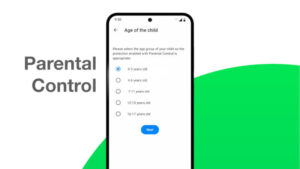Friday FOSS Week in Review
Gawd, but it’s been a long time since our last FOSS Week In Review. Many might be wondering where we’ve been and what we’ve been doing. Well, it’s a long story. I intend to tell you about it in another article in the next week or so. In the meantime, here’s a few things that caught my eye this week…
Ubuntu working with HP on low power server
We learned this week that Canonical is one of the partners on Moonshot, HP’s efforts to develop a new breed of green, low powered servers. The Redstone Server debuted in November as the first Moonshot server, with the newest server chassis, Project Gemini, being announced on Tuesday. This server utilizes a new Intel Atom Centerton x86 processor. According to Sean Michael Kerner writing on ServerWatch, this new server is quite energy efficient:
“In a press event to mark the Gemini launch, Jason Waxman, General Manager for Cloud Infrastructure at Intel’s Data Center and Connected Systems Group, said that for a typical Gemini workload the Centerton will work in a 12 to 14 Watt power envelope. In contrast, an Intel Xeon would require at least 150 Watts of power for the same workload.”
Evidently, the Gemini platform will be “chip agnostic,” and will be able to utilize ARM chips from Calxeda as well. Not surprisingly, HP is relying on Linux to do a lot of the heavy lifting on this project. Again, according to ServerWatch:
“HP has a number of operating system partners — Canonical and Red Hat, for example,” stated Santeler. “Most of the workloads that are currently targeted are running on Linux or open source, but we are always working with additional partners for broader availability.”
In this day and age, cutting server energy usage from 150 watts down to 14 watts is a very good thing.
Bad Times For Nokia
It hasn’t been a good week for Nokia. On Monday we learned that Moody’s became the last of the three big credit-rating firms to downgrade Nokia’s debts to junk status. According to AppleInsider, the financials do look rather grim for the Finnish phone maker:
“Despite being a major player in Microsoft’s new Windows Phone platform initiative, which some analysts believe will hold more market share than Apple’s iPhone by 2016, Nokia saw smartphone shipments drop 60 percent year-on-year in the first quarter of 2012 while cheaper feature phone sales took a 16 percent hit during the same period. Overall, Nokia posted a loss of some $1.7 billion in quarter one with most of the steep decline blamed on the switch away from Symbian to Windows Phone. It was reported that the company actually made more money on a patent licensing settlement from Apple than it did selling the Lumia Windows Phone.”
Of course, a lot of FOSS folks have questioned the wisdom behind Nokia’s adoption of Windows as their sole smartphone platform since they made it. More questions arose late last week when Ina Fried reported on AllThingsD that the company was dropping “Meltemi,” a Linux based OS for low-end feature phones as part of a cost reduction measure that will eliminate 10,000 jobs and shutter facilities in Finland, Germany and Canada:
“Nokia never officially confirmed the existence of Meltemi, so it likewise isn’t confirming its demise. However, sources tell AllThingsD that the project has been shelved, though elements of it may live on in other efforts.”
More bad news came when Microsoft announced there would be no upgrade path for owners of Windows Phone 7 devices when Windows Phone 8 is released, which might cause potential Windows phone buyers to hold off until after the release of the new OS. Again from Ina Fried:
“But it remains to be seen how the announcement of Windows Phone 8 — several months before the first devices are ready — will impact sales of the Nokia Lumia and other Microsoft-based phones.
Clearly sensing the potential for problems, Nokia posted this statement on its U.S. Twitter account Wednesday afternoon: ‘We will bring the elements of WP8 to Lumia 900 that aren’t tied to the new hardware.'”
About this time I have to wonder if the decision makers in Finland are beginning to second guess their decision to bet the house on Microsoft?
Good News On the Patent Front
Two positive developments this week might eventually bring us some patent relief.
The most immediately important story has to do with a ruling made by a Washington, DC federal appeals court that will definitely slow down the trolls and might put them out of business altogether. Basically the ruling requires patent holders to sue each alleged offender separately and not bunch them together in a single lawsuit. Daniel Fisher at Forbes explains it this way:
“Under the new rules, plaintiffs can only combine defendants who are accused of patent infringement if there ‘is an actual link between the facts underlying each claim of infringement.’ In other words, it’s not enough to claim multiple companies incorporated patented technology in their products; they must have done so at the same time, using parts from the same supplier, or conspired to use the technology together. Otherwise, the patent owner faces the cost of mounting individual suits against each offender — easy enough if there’s money from product sales to cover the bills, not so easy if patent litigation is the owner’s sole business.”
This week also saw the announcement of the DPS, a new copyleft license for patents. Although it’s too soon to tell if this will amount to anything or not, if widely adopted in the FOSS world it could help lower open source projects patent vulnerabilities. Writing for InfoWorld, Simon Phipps explained the concept behind the new license:
“Like all the best ideas, it’s simple enough. As a business, you publish a statement that you are henceforth licensing any and all patents you own under the DPL and will make such licensing a condition of sale of any of your patents. From that point, without needing to enumerate the patents you own or negotiate terms with any other business, you are entitled to use all patents ever licensed under the DPL by all other businesses. The catch? You may never again use patents offensively against other signatories of the DPL. By this simple step, all patents owned by all DPL signatories are ‘de-weaponized.'”
Again, it’s much too early to tell if this will catch-on or have an impact. But it does seem to have the potential to be a great help. Outlawing the patenting of software altogether would be a bigger help, however.
That’s going to do it for this week. Have a nice weekend. And remember, may the FOSS be with you…
Christine Hall has been a journalist since 1971. In 2001, she began writing a weekly consumer computer column and started covering Linux and FOSS in 2002 after making the switch to GNU/Linux. Follow her on Twitter: @BrideOfLinux









Quick, hands up anyone who is surprised at Nokia’s fortune since they hired the Microsoft’s head of Business Division?
MS is so far behind Android and Apple in mobile that its on another page yet the MS guy went full steam ahead anyways.
But hey, were old enough to know that the only groups that get screwed more often than MS competitors are their ‘partners’.
Theyre like Typhoid Mary in that respect.
We saw Yahoo destroyed recently by MS dealings (using Bing for their search is not even what Im talking about.) and now we have another MS entryism case where logic is vetoed by the priority number one: do whats best for MS, not teh company you work for.
You’re right Tim. Hardly anybody ever signs a major deal with Microsoft and survives.